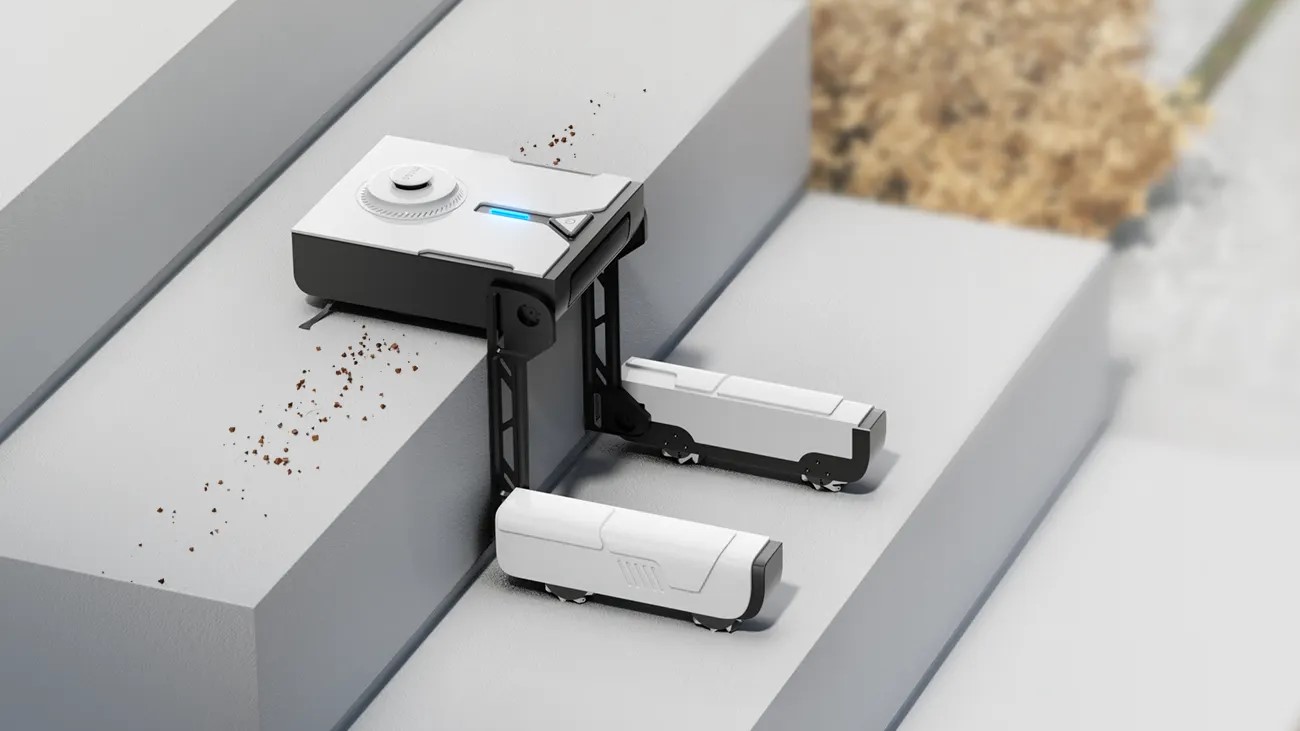What is the future of the smart home? These are the ideas I’m most excited about, from robots to the next TV trend
The future is looking pretty bright for the smart home


The Livingetc newsletters are your inside source for what’s shaping interiors now - and what’s next. Discover trend forecasts, smart style ideas, and curated shopping inspiration that brings design to life. Subscribe today and stay ahead of the curve.
You are now subscribed
Your newsletter sign-up was successful
In 2019, the Swedish furniture brand IKEA made headlines when it introduced its Rognan concept to the world.
As the video below shows, Rognan was set to be robotic furniture capable of shifting its form and function to limited available space. At the touch of a button, it could deftly turn from a bed, then in to a sofa, to finally converting into a closet.
IKEA promised more information that summer, but nothing has followed in the intervening three years, making us think that Rognan is dead — or at least sleeping. That’s a pity: something like this could transform the smart home. Adapting your furniture to fit the space really does feel like something out of science fiction.
Fortunately, other innovations are a little closer to reality. Here are three that have got me particularly interested.

1. Tackling robot vacuums’ Achilles heel
As someone that lives with three cats (and another human), the fight against dust and fur is a constant (and losing) battle. Thank goodness for robot vacuums, then, which make staying on top of the place just about manageable.
But robot vacuums have a well-documented problem: they can’t climb stairs. That means, unless you live in a condo or a bungalow, you’re going to need a backup vacuum, because even if you buy the best robot vacuum for each floor, you still have to do the stairs the old-fashioned way.
Fortunately, this is a problem that the robot vacuum industry is taking seriously, and the most intriguing solution comes from a startup called Migo Robots. Its Ascender vacuum concept detects stairs as it approaches, and pops out a pair of stilts helping it climb each step. Once there, the robot vacuums, before repeating the process for the next one.
The Livingetc newsletters are your inside source for what’s shaping interiors now - and what’s next. Discover trend forecasts, smart style ideas, and curated shopping inspiration that brings design to life. Subscribe today and stay ahead of the curve.
It is just a concept, so treat it with some skepticism for now. All the same, you can bet Migo Robots isn’t the only company working on ways to make robot vacuums multi-floor cleaners.
2. A robot butler enhanced with AI
Speaking of devices that struggle with stairs, Amazon’s Astro Bot is currently essentially an Alexa speaker on wheels.
It’s not without its charms, but some way off a Jetsons-style robot butler of the future. A robot with the manual dexterity to fold laundry, do the ironing or load the dishwasher isn’t something we can expect in the short term, though both Tesla and Dyson are working on the soft robotics involved in such a challenge.
But Amazon is apparently working on making a future version of Astro a lot more useful, with a little help from ChatGPT-style artificial intelligence.
It's believed that Amazon intends to add an “intelligence and conversational spoken interface” to future smart home robots via large language models. In practice, that means that the robot could spot things around the house and then “engage in a Q&A dialogue on what it saw”.
In other words, if all goes to plan, Astro 2.0 or 3.0 might be able to call an ambulance if it spots someone falling over, or alert a human if it sees the gas hob has been left on. The documents even suggest the robot might be able to track down missing keys, or tell you if your child invited unwanted guests over after school.
Add to the fact that Amazon now owns iRobot — the company behind Roomba — and a future Astro could be a huge step forwards for the smart home.
3. TVs that are out of sight and out of mind
TVs, I think we can all agree, are a bit unsightly. And our thirst for big-screen content means that they’re harder than ever to ignore with panels of 55, 65 or even 75 inches and upwards being increasingly common.
Manufacturers have tried to make TVs blend in with more classy surroundings. Probably the most successful is Samsung via its Serif and Frame models, but while these are definitely a step in the right direction, they’re ultimately not fooling anyone.
What we really need are TVs with enormous screens that can be neatly tucked away when not in use: out of sight, and out of mind.
Fortunately, manufacturers are working on just that. LG has two interesting solutions: the OLED R rolls up like a scroll when not in use, while the Transparent OLED Signage goes completely transparent, hiding in plain sight.

Both have “Inquire to buy” buttons, suggesting that, for now, they’re not for those with cash-flow problems (and the latter is more intended for business use anyway).
But these are promising innovations that could one day relegate TVs from being the focal point, and in doing so put the ‘living’ back in ‘living room’.

Freelance contributor Alan has been writing about tech for over a decade, covering phones, drones and everything in between. Previously Deputy Editor of tech site Alphr, his words are found all over the web and in the occasional magazine too. He often writes for T3 and Tom's Guide. When not weighing up the pros and cons of the latest smartwatch, you'll probably find him tackling his ever-growing games backlog. Or, more likely, playing Spelunky for the millionth time.